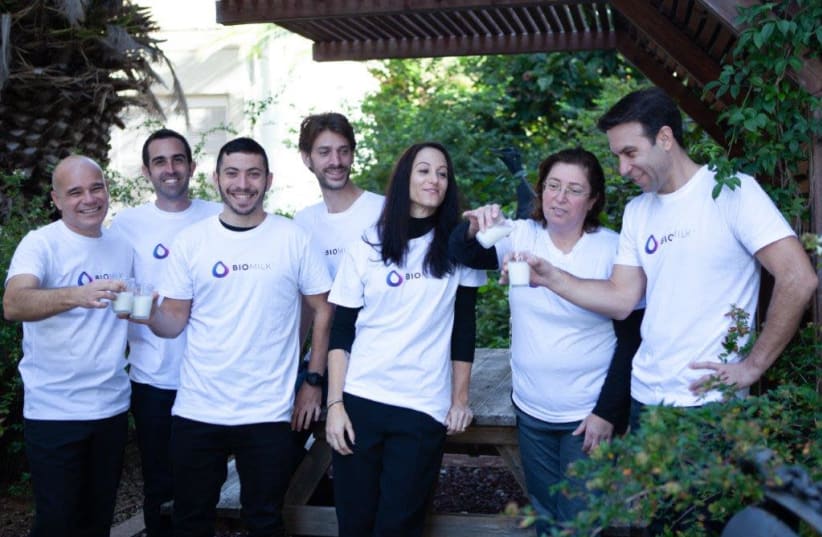An Israeli company is vying to be the first in the world to make baby formula with cultured breast milk instead of the substitutes from animal or plant sources currently on the market.If BioMilk succeeds in producing cultured breast milk with the ingredients that exist almost exclusively in the real thing, it will be a fundamental change to the infant-formula market specifically and the dairy industry in general. It will also play a key role in producing a next generation of healthier adults.Breast milk is the healthiest for babies, according to all studies.Last week, BioMilk said it had received approval from the Helsinki Committee to launch new research in collaboration with the Department of Obstetrics, Gynecology and Fertility at The Rabin Medical Center-Beilinson Campus in Petah Tikva.Some 50 postpartum volunteers will donate about 50 ml. of breast milk, which will be transferred to the company to separate the cells that produce breast milk and use them to produce the main components of breast milk.“Our groundbreaking research with Beilinson Hospital is for us a significant sign of the revolution and the changes we intend to make in the dairy industry in Israel and around the world,” BioMilk CEO Tomer Eisen said in a press release. “I anticipate that the results of the research that may be obtained may be the ‘next thing’ regarding the milk-substitute market, which will allow any mother who cannot or does not choose to breastfeed to provide her baby with the same nutritional values that comes from traditional breast milk.”BioMilk’s technology was developed by Hebrew University of Jerusalem Prof. Nurit Argov-Argaman, who has been working for more than a decade on the process of producing cultured milk from mammary gland cells without milking them. This includes cows, sheep, goats and other mammals.The driver behind her work is better nutrition, Argov-Argaman told The Jerusalem Post.“There is a huge difference between the composition of breast milk and the current commercial formulas on the market,” she said. “There is a huge lack of ability to really mimic breast milk, and the health consequences have become well known.”Babies who drink formula as their sole nutrition in the first six months of life are more likely than breastfed babies to develop diarrhea and inflammation in the short term and asthma, metabolic syndromes, blood-pressure disease and even stroke in the long run, Argov-Argaman said.“This could be very important for the public health of society,” she said.Currently, the only way for mothers who do not breastfeed to provide their children with breast milk is through breast-milk banks, which are generally not regulated except for those that provide milk to neonatal intensive-care units and similar settings. This “safe milk” is very expensive and inaccessible to the average parent.If the study goes well, the goal is to begin commercializing within the next three years, according to the company’s vice president of business development, Nathaniel Benchemhoun.There are two potential paths for BioMilk. The company could first produce the additional ingredients that exist in breast milk, but are lacking in infant formulas, and combine them into the existing formulas, thereby improving the quality of existing milk substitutes on the market.They could also license their technology to milk producers and enable them to produce the components on their own.In addition, beyond human milk, the same technology could be used to leverage the healthiest components of goat and cow milk, making milk that is better for menopausal women or young children with allergies, for example, Argov-Argaman said.“I want to make milk,” she said. “I want to make super milk… with a much higher, positive impact on our health.”
Israeli scientists developing first ‘cultured breast milk’
“I want to make milk,” she said. “I want to make super milk… with a much higher, positive impact on our health.”
